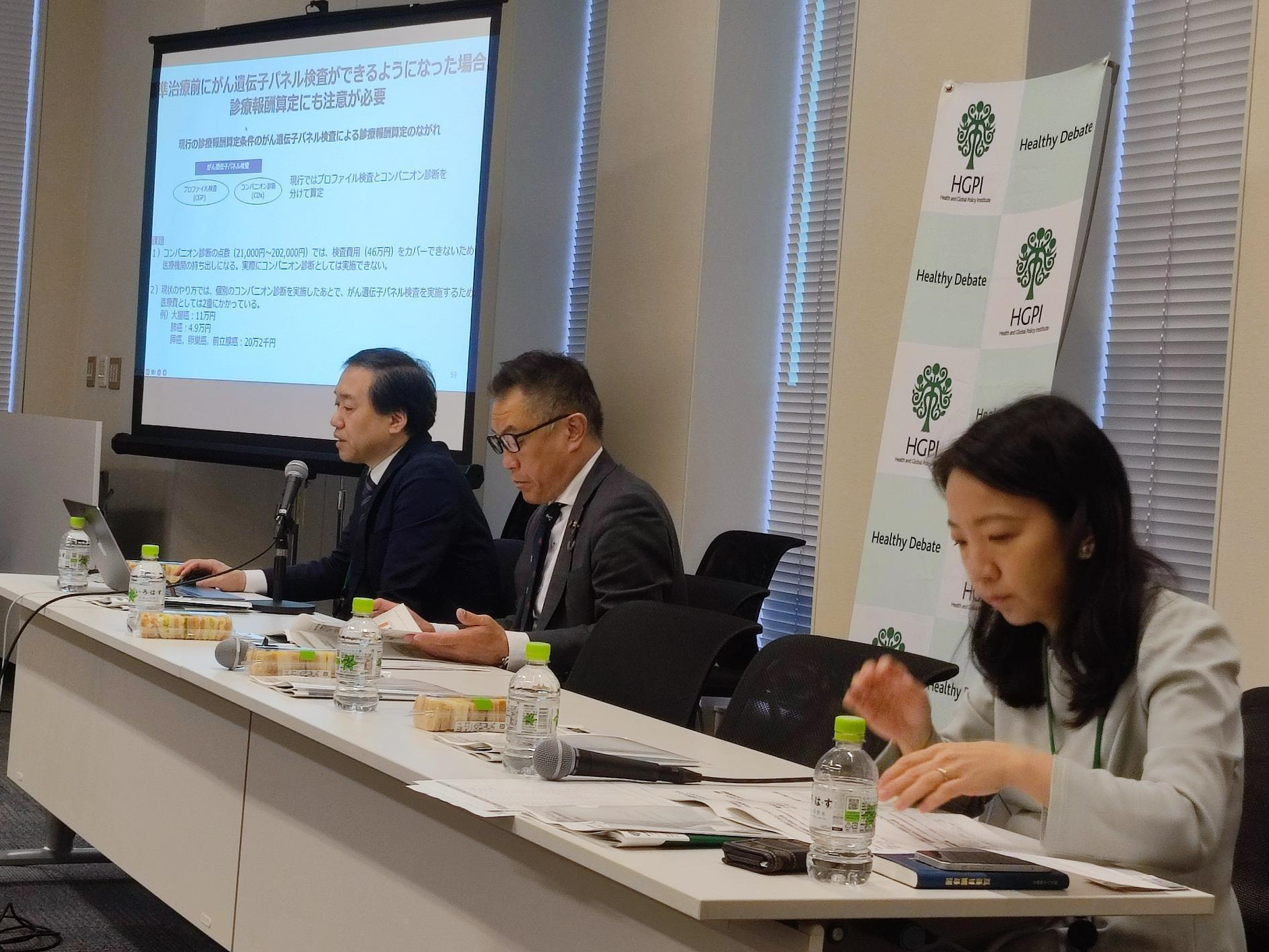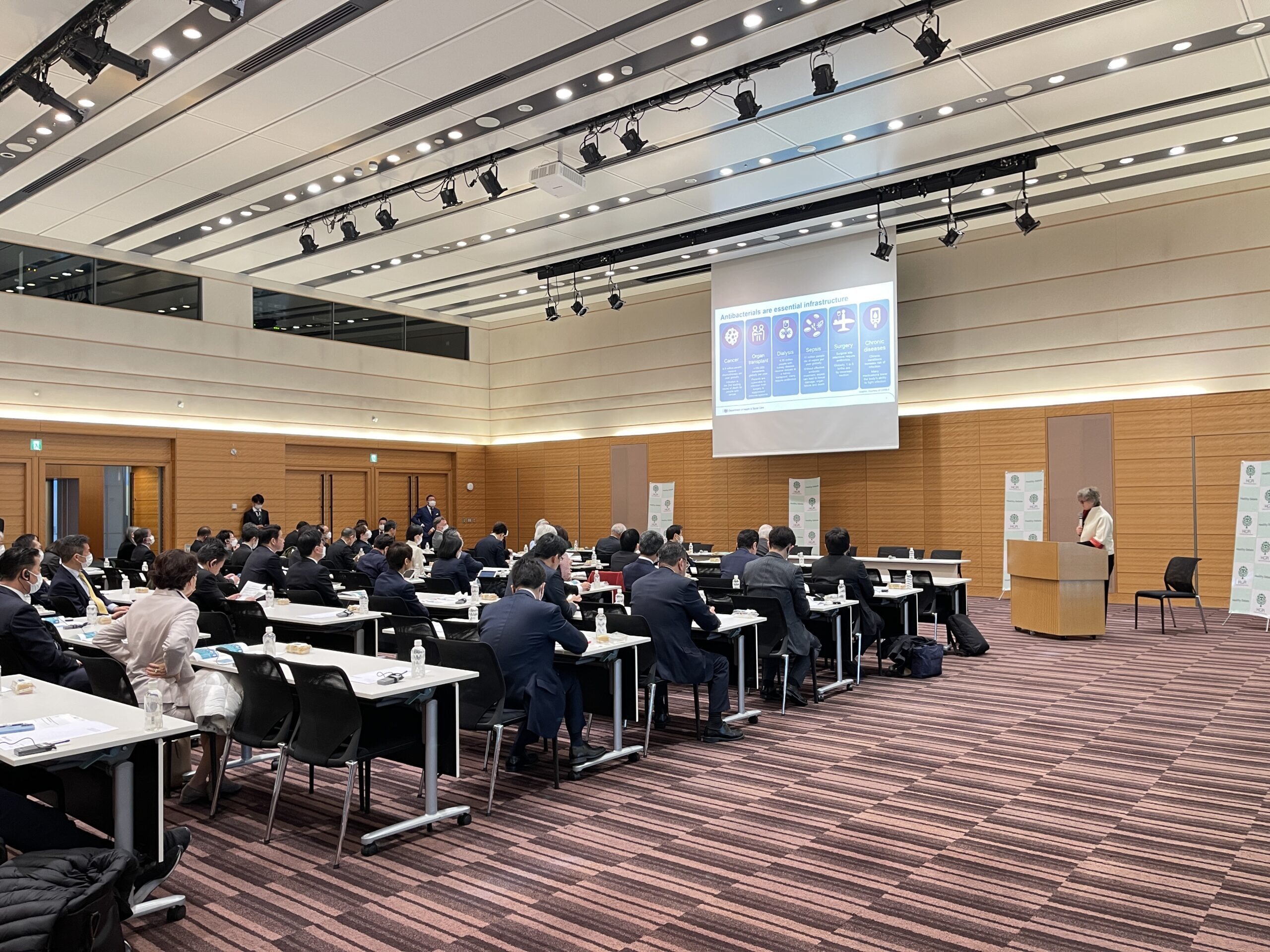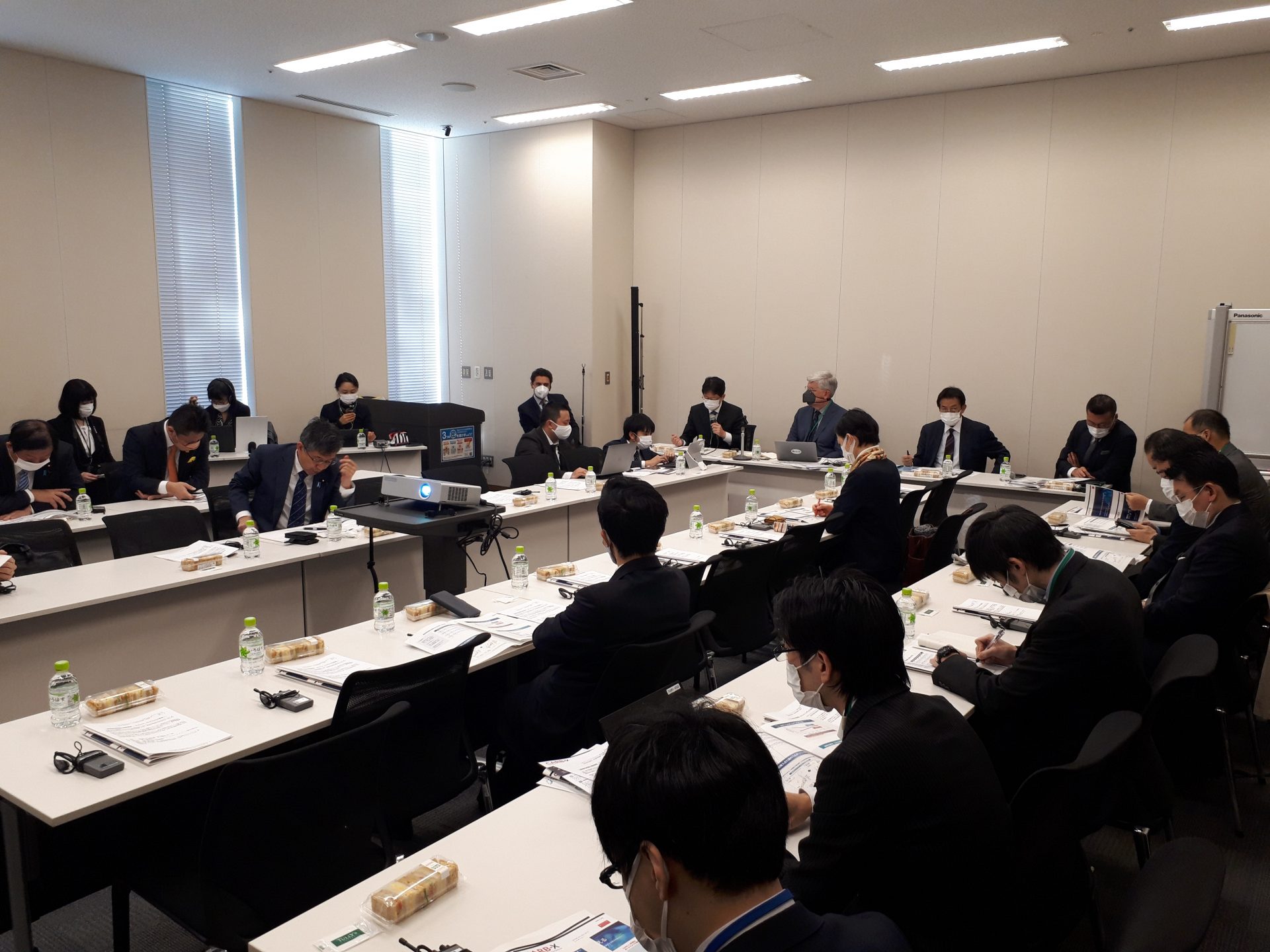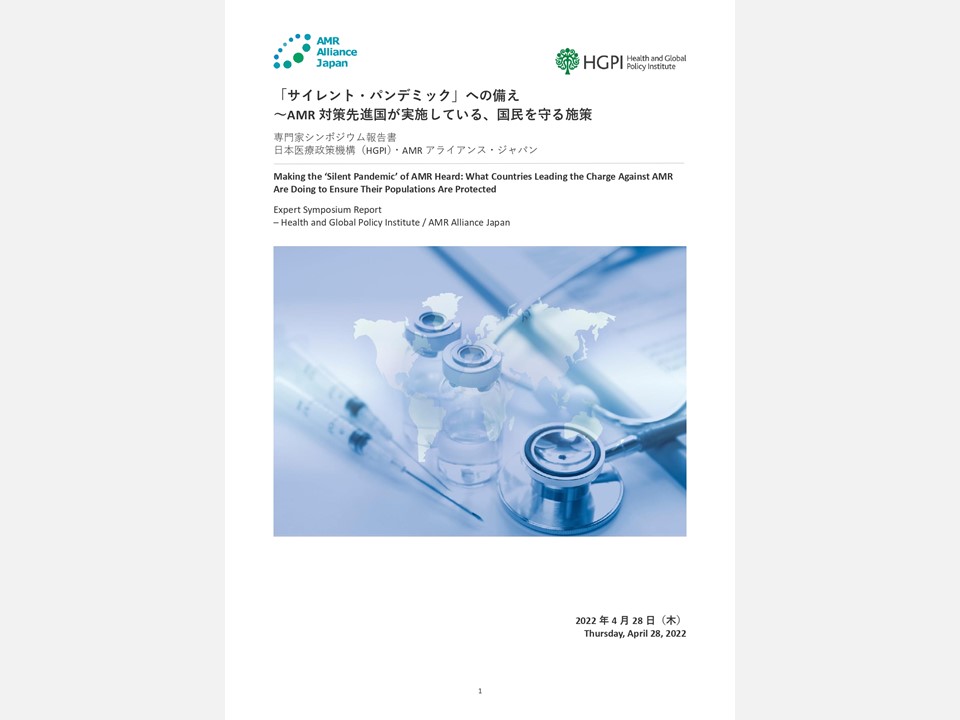[Event Report] Non-partisan Diet Member study session: “Urgent Topics in Antimicrobial Resistance: Understanding the Threat of a Silent Pandemic” (December 5, 2023)
date : 12/19/2023
Tags: AMR, Diet Member Briefing
![[Event Report] Non-partisan Diet Member study session: “Urgent Topics in Antimicrobial Resistance: Understanding the Threat of a Silent Pandemic” (December 5, 2023)](https://hgpi.org/en/wp-content/uploads/sites/2/HGPI_20231205_AMR_01-scaled-1.jpg)
Health and Global Policy Institute (HGPI) and the Global Leaders Group on Antimicrobial Resistance, which was established by the World Health Organization (WHO) and its partners, co-hosted a study session for members of the Diet entitled “Urgent Topics in Antimicrobial Resistance: Understanding the Threat of a Silent Pandemic”. It featured lectures from Dr. Norio Ohmagari (Director, AMR Clinical Reference Center, National Center for Global Health and Medicine (NCGM)) and Mr. Yann Ferrisse (Director, Business Development & Partner Engagement, GARDP (Global Antibiotic R&D Partnership)). GARDP is a non-profit organization that was created by the WHO in 2016 to drive a global response to AMR through public and private partnerships for researching and developing new drugs to meet public health needs. They explained the urgent nature of AMR as well as the latest developments in Japan and around the world. The lecture was followed by a lively opinion exchange session with many questions from attending Diet members.
■Purpose
Antimicrobial Resistance (AMR), in which antimicrobial agents become ineffective against microorganisms is spreading rapidly across the world. The British Medical Journal reported that as of 2022, the annual number of global deaths directly attributable to AMR is estimated to be 1.27 million. In recent years, the spread of AMR has been referred to as a “silent pandemic” or “the next threat after COVID-19.” Furthermore, the development of new antimicrobial agents has been stagnant worldwide since the 1980s, and countermeasures are urgently needed. During the briefing, infectious disease expert Dr. Norio Ohmagari spoke about the urgent issue of AMR in Japan based on case studies. Additionally, GARDP Director Mr. Yann Ferrisse spoke about the snapshot of global R&D for antibiotics and the importance of international cooperation. The presentations were followed by a question-and-answer session with the congressional members in attendance.
■Lecture Points
- The week from Saturday, November 18, 2023 to Friday, November 24, 2023 has been designated as World Antimicrobial Awareness Week (WAAW) by the World Health Organization (WHO), and the Global Leaders Group on Antimicrobial Resistance has been making concentrated efforts to inform the world about various challenges in antimicrobial resistance (AMR).
- Developing effective antimicrobials and using them appropriately are key topics in AMR control. To achieve these objectives, efforts should be devoted to creating policies that will serve as incentives as well as to the One Health approach mentioned in the G7 Nagasaki Health Ministers’ Communiqué and G7 Hiroshima Leaders’ Communiqué, which were adopted under the leadership of Japan during its G7 presidency.
- In 2024, the United Nations General Assembly (UNGA) will reconvene for a second High Level Meeting on AMR (following the first in 2016), providing a platform for global discussion and negotiation.
- An estimated 4.95 million global deaths are attributed to or associated with AMR, which is higher than the deaths due to Human Immunodeficiency Virus/Acquired Immunodeficiency Syndrome (HIV/AIDs) or malaria. AMR bacteria have also been spreading in Japan, where the number of deaths due to AMR is on the rise. Japan is also seeing cases in which AMR bacteria is being introduced from abroad.
- Antimicrobials are a cornerstone of modern medicine and are used in various treatments, but development on new antimicrobials has been at a standstill since the 1990s. At the same time, proper antimicrobial stewardship means we must restrict their use. This is a structural issue facing the antimicrobial market that is preventing new antimicrobials from being introduced.
- To enable the long-term use of antimicrobials in a sustainable environment, push incentives that support R&D must be further reinforced. While CARB-X provides financial support for preclinical and early clinical development, GARDP provides technical support for late-stage clinical development, creating a support system that is complementary, cross-sectoral, and international. Japan needs to help strengthen this existing support system as well as consider better mechanisms to help Japanese companies and academia effectively utilize existing international support systems.
- While doing so, another crucial step will be establishing pull incentives that support antimicrobials after commercial launch by decoupling usage/sales volumes and revenue after regulatory approval. From this fiscal year, Japan has also implemented a pull incentive project called Antimicrobial Securement Project to support the antimicrobial R&D. Creating better and large scale pull incentives will complement push incentives and the antimicrobial R&D ecosystem and make it possible to overcome the structural challenges facing the market.
- Japan continues to make international contributions in the field of infectious diseases, particularly in terms of access. In collaboration with related organizations around the world such as GARDP, Japan has provided low- and middle-income countries with a drug to treat tuberculosis, which was the first such drug developed worldwide in almost four decades, as well as a drug to treat gram-negative bacteria, which is one of the most difficult-to-treat nosocomial infections.
- On the other hand, to develop effective therapeutic drugs against AMR, the range of compounds that can be candidates for future drugs must be broadened and the potential of compounds among the many available options must be evaluated. Support for infectious disease drug discovery will be essential to discover new therapeutic drugs in the future and to continue contributing to access.
[Program] (Titles omitted)
Opening Remarks
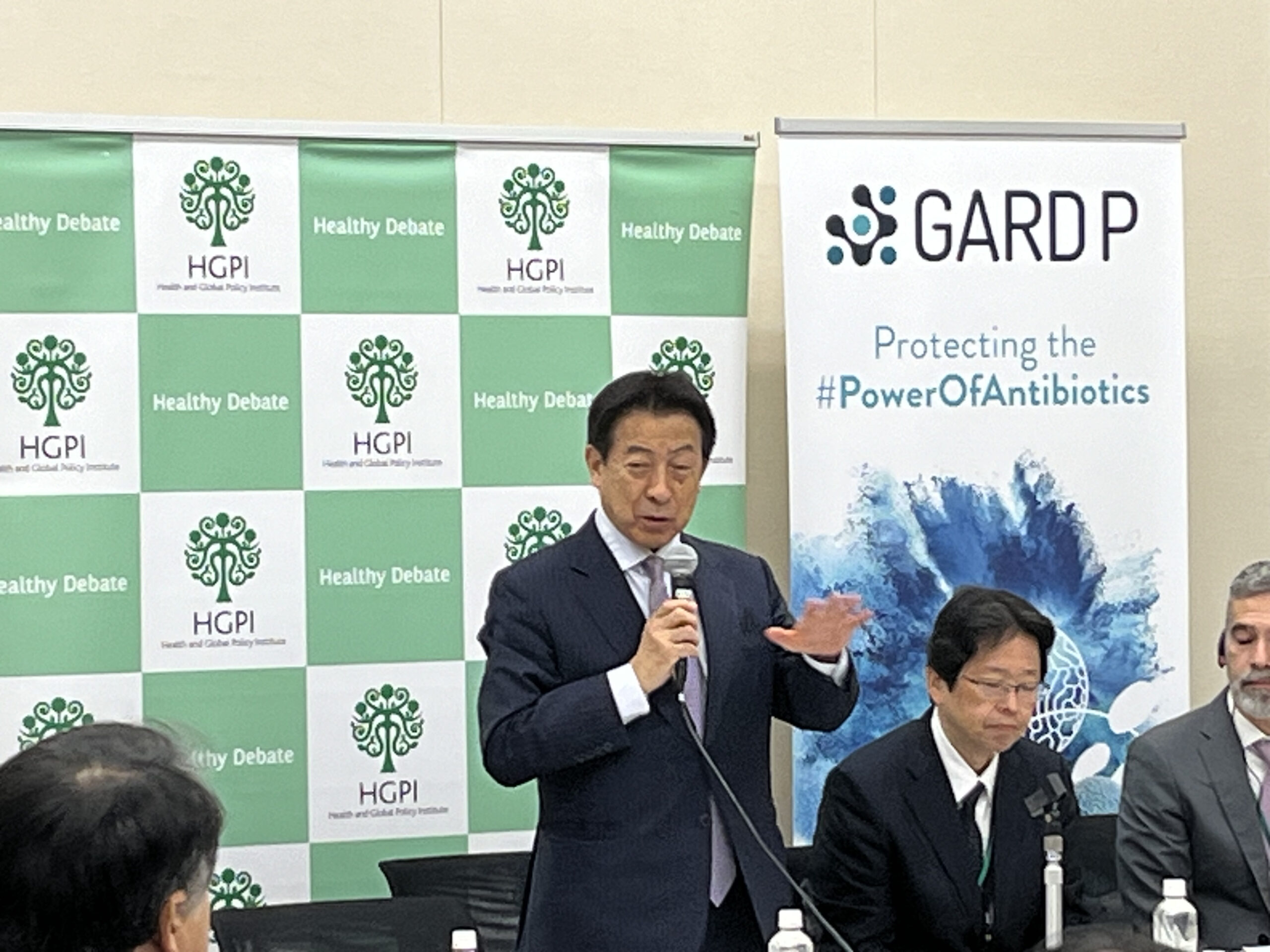 Yasuhisa Shiozaki (Member of The Global Leaders Group on Antimicrobial Resistance / Former Minister of Health, Labor and Welfare)
Yasuhisa Shiozaki (Member of The Global Leaders Group on Antimicrobial Resistance / Former Minister of Health, Labor and Welfare)
Urgent Topics in Antimicrobial Resistance
Lecture 1 “Current Status and Issues of AMR in Japan”
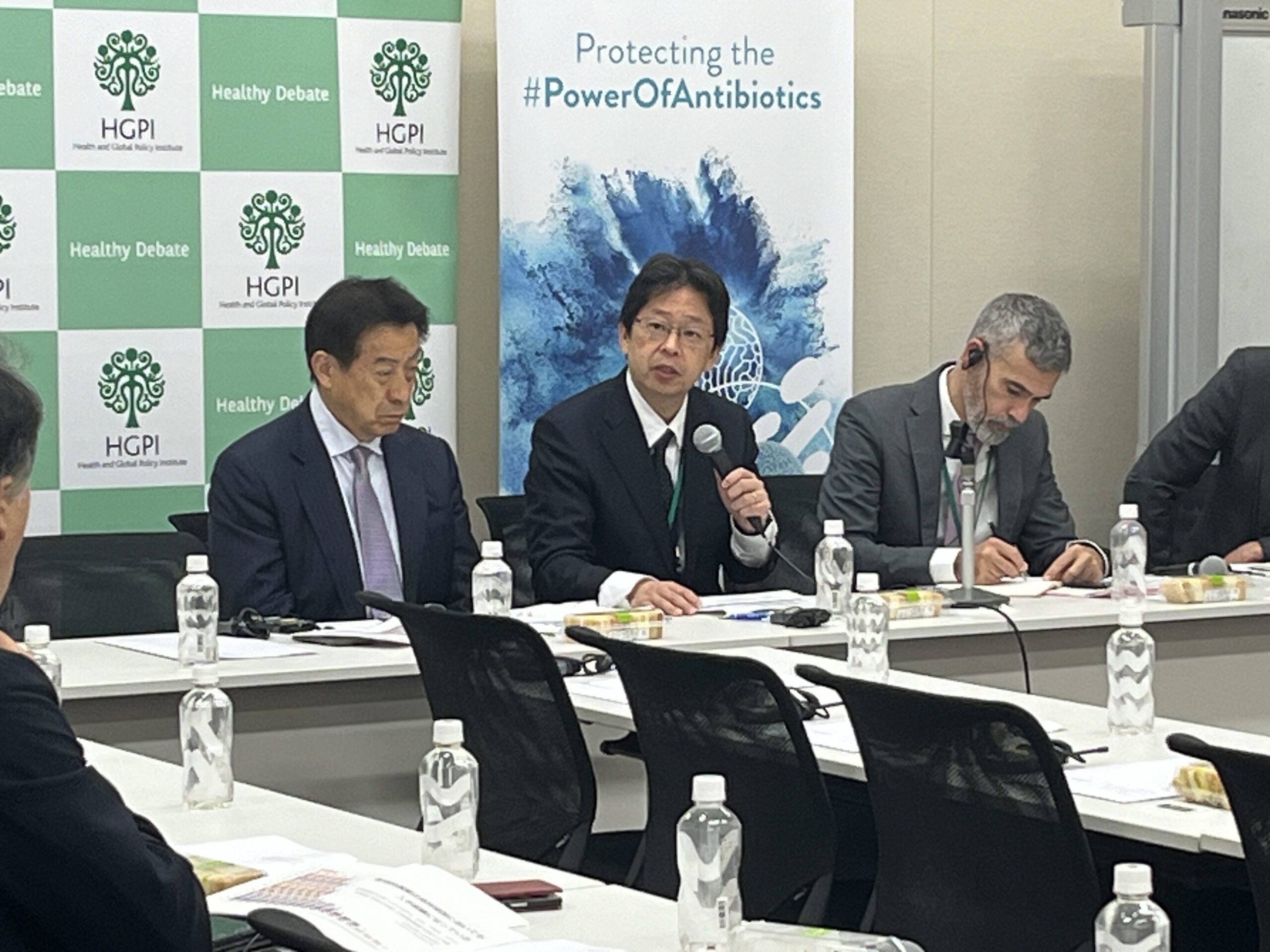 Norio Ohmagari (Director, AMR Clinical Reference Center, National Center for Global Health and Medicine (NCGM))
Norio Ohmagari (Director, AMR Clinical Reference Center, National Center for Global Health and Medicine (NCGM))
Lecture 2 “Efforts made by GARDP against AMR”
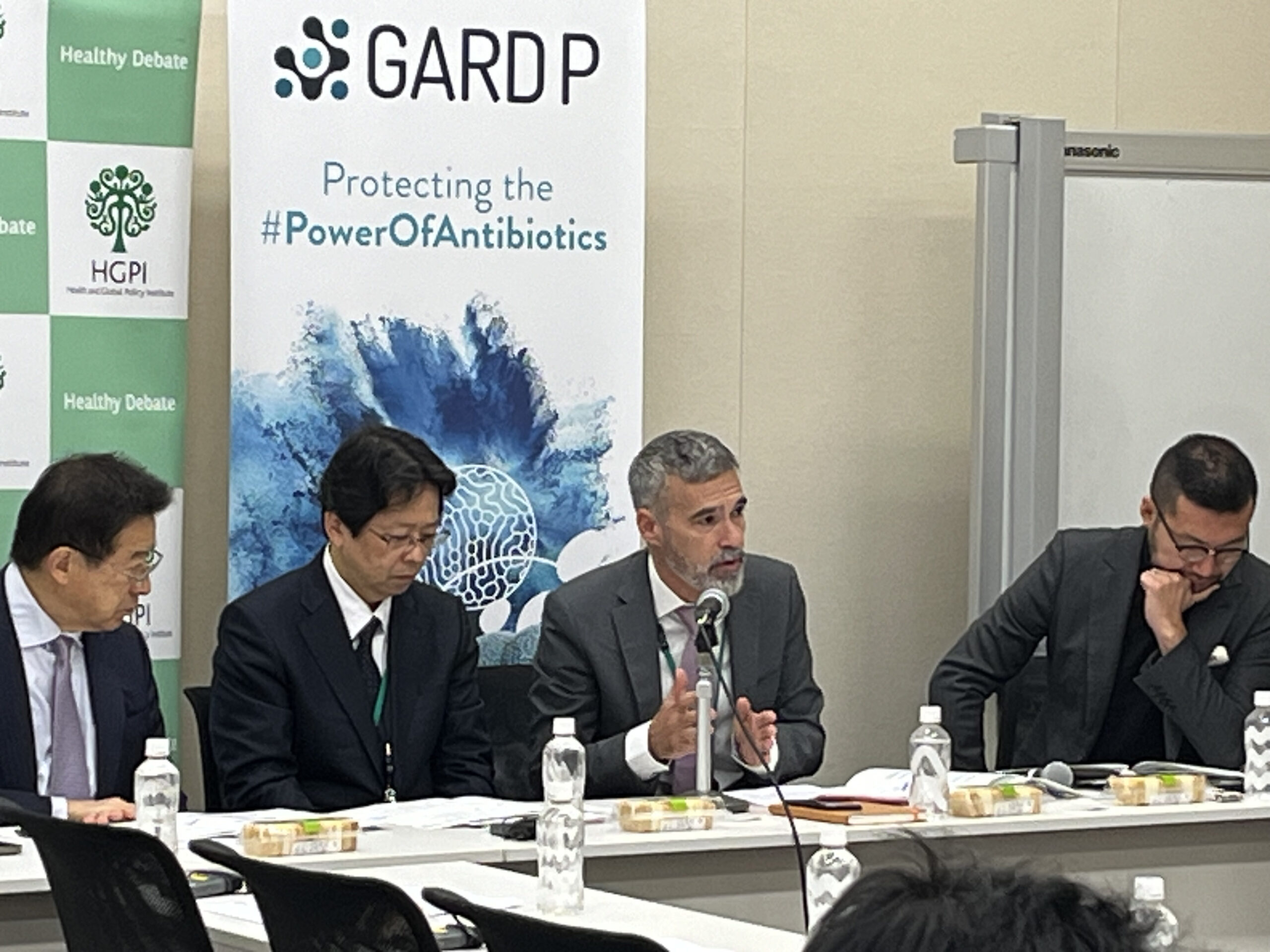 Yann Ferrisse (Director, Business Development & Partner Engagement, GARDP (Global Antibiotic R&D Partnership))
Yann Ferrisse (Director, Business Development & Partner Engagement, GARDP (Global Antibiotic R&D Partnership))
Question and answer session
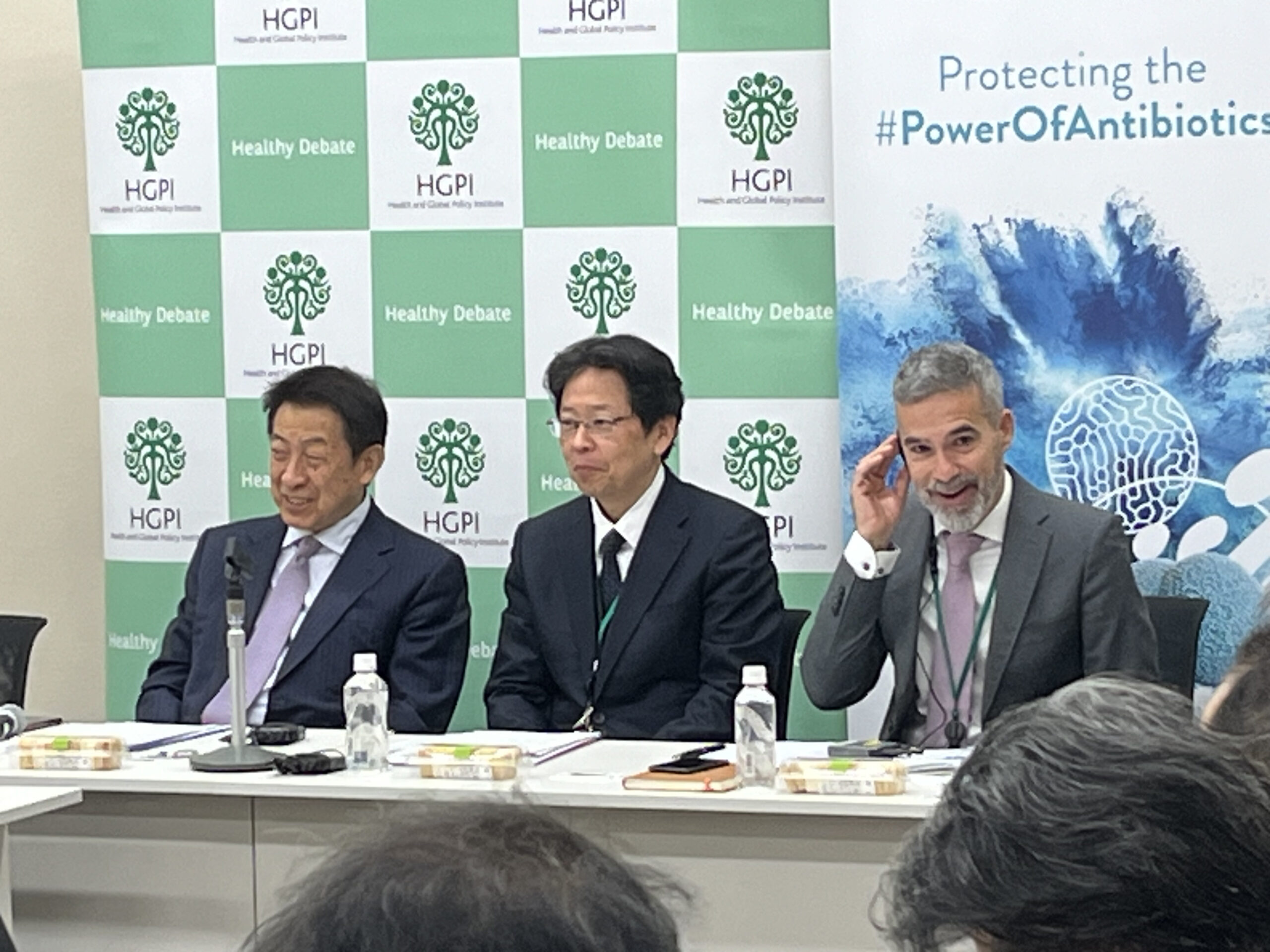
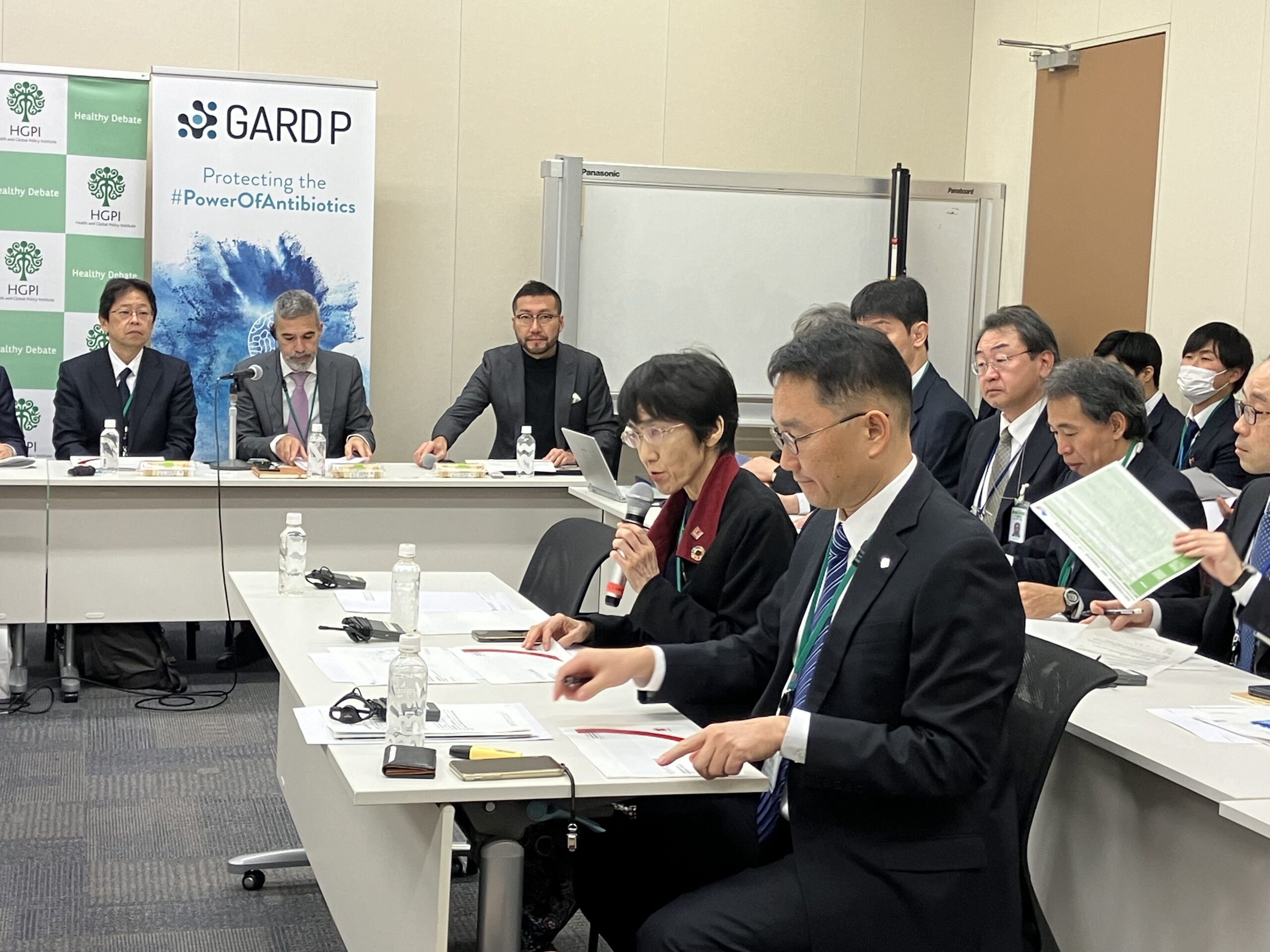
Top Research & Recommendations Posts
- [Policy Recommendations] The Path to a Sustainable Healthcare System: Three Key Objectives for Public Deliberation (January 22, 2026)
- [Research Report] The 2025 Public Opinion Survey on Healthcare in Japan (March 17, 2025)
- [Research Report] Perceptions, Knowledge, Actions and Perspectives of Healthcare Organizations in Japan in Relation to Climate Change and Health: A Cross-Sectional Study (November 13, 2025)
- [Policy Recommendations] Reshaping Japan’s Immunization Policy for Life Course Coverage and Vaccine Equity: Challenges and Prospects for an Era of Prevention and Health Promotion (April 25, 2025)
- [Research Report] The 2023 Public Opinion Survey on Satisfaction in Healthcare in Japan and Healthcare Applications of Generative AI (January 11, 2024)
- [Research Report] AMR Policy Update #4: Cancer Care and AMR (Part 1)
- [Public Comment Submission] “Assessment Report on Climate Change Impacts in Japan (Draft Overview)” (December 24, 2025)
- [Policy Recommendations] Developing a National Health and Climate Strategy for Japan (June 26, 2024)
- [Research Report] The Public Opinion Survey on Child-Rearing in Modern Japan (Final Report) (March 4, 2022)
- [Research Report] Survey of Japanese Physicians Regarding Climate Change and Health (December 3, 2023)
Featured Posts
-
2026-01-09
[Registration Open] (Hybrid Format) Dementia Project FY2025 Initiative Concluding Symposium “The Future of Dementia Policy Surrounding Families and Others Who Care for People with Dementia” (March 9, 2026)
![[Registration Open] (Hybrid Format) Dementia Project FY2025 Initiative Concluding Symposium “The Future of Dementia Policy Surrounding Families and Others Who Care for People with Dementia” (March 9, 2026)](https://hgpi.org/en/wp-content/uploads/sites/2/dementia-20260309-top.png)
-
2026-02-05
[Registration Open] (Webinar) The 141st HGPI Seminar “Current Status and Future Prospects of Korea’s Obesity Policy: Voices of People with Lived Experience in Policy Promotion” (March 3, 2026)
![[Registration Open] (Webinar) The 141st HGPI Seminar “Current Status and Future Prospects of Korea’s Obesity Policy: Voices of People with Lived Experience in Policy Promotion” (March 3, 2026)](https://hgpi.org/en/wp-content/uploads/sites/2/hs141-top-1.png)
-
2026-02-06
[Research Report] AMR Policy Update #5: Cancer Care and AMR (Part 2)
![[Research Report] AMR Policy Update #5: Cancer Care and AMR (Part 2)](https://hgpi.org/en/wp-content/uploads/sites/2/HGPI_20260204_AMR-Policy-Update-5.png)




